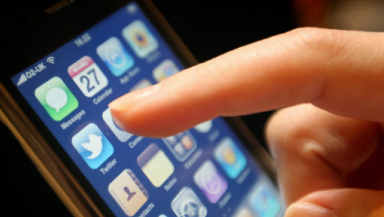
Scrolling through Twitter, texting a friend and playing games on an iPad while watching TV sounds like a bit of a headache, but for today's digital generation it's become the norm.
The results of a new survey indicate that the average UK teenager owns up to six digital devices - a Smartphone, TV, laptop, games console, tablet and digital camera.
Generation Z, otherwise known as the iGeneration, spans from those born in 1992 to 2010. Most of those born in this period have grown up with a plethora of handheld digitally-enabled devices at their fingertips and many will not even remember a time without the internet.
The capacity of today's young people to utilise technology to their advantage and their ability to multitask could mean a generation of tech-whizzes in the future who will ensure the UK is at the forefront of digital and technological innovation.
The research that accompanies this new survey from IT firm Logicalis indicates that "nurturing this generation's digital capabilities could bring significant economic value to UK plc and increase the UK's competitiveness in the international market".
The concern of many, however, is the more current effect that such a focus on technology is having on young people. Research suggests that the increase in availability of technology may be having a negative effect on young people's social development, despite the apparent benefits of increased productivity.
Cyber bullying is common and a recent rise in teenage suicides related to abuse received on internet forums has become the focus of many discussions about the dangers of the internet and the anonymity that cyberspace offers. MIT professor Sherry Turkle has described our digitally-driven society as one in which we are "alone together". We cultivate relationships online and it is not uncommon to interact almost solely with friends via social media, particularly among the younger generation, which makes us feel incredibly connected to one another while physical interaction is limited.
Used to communicating online, verbal communication skills are taking a hit and now that almost anything is available at the touch of the button, real human interaction is no longer considered as important or necessary.
There is also a blurring of the boundary between public and private. We can feel our privacy has been invaded. Something we made public – a photo or a personal viewpoint perhaps – could be something we come to regret later. More distressingly, pictures or information that were shared in trust can end up all over the web because the recipient broke that trust.
The impact of all this is significant. A generation of young people is growing up with the belief that knowledge is instantaneous, if you can't get something immediately it's not worth it, and relationships are best developed with hashtags, abbreviations and the strategic use of emoticons.
That's not to say technology is not an incredible resource; it certainly is. Because of it, we have the ability to cure diseases, we can connect with friends all over the world and charities are able to reach millions with their message through viral campaigns. Facebook definitely has its perks.
But it's also becoming increasingly important to know when to switch off, where to draw clear boundaries, and when to protect ourselves. When to put the laptop, the phone and the tablet down and just enjoy life without trying to reduce it to 140 characters. The iGeneration is having to figure all this out pretty much by trial and error.
There's a bright side to a younger tech-savvy generation - a friend's three year old son once showed me how to use Skype. But the darker edge to the growing influence of the internet marks the necessity of moderating the place it is given in young people's lives.













